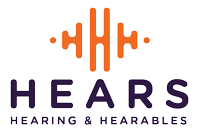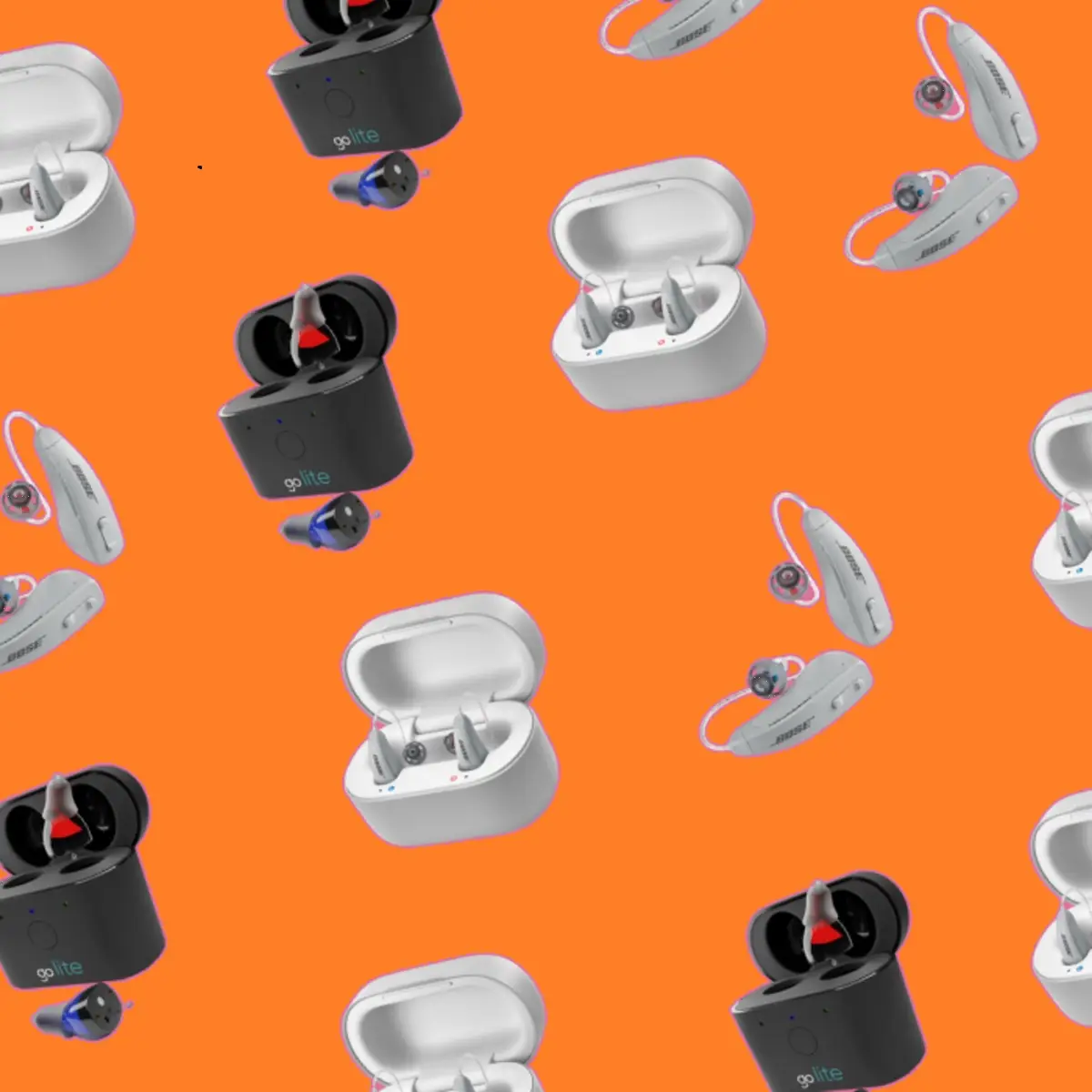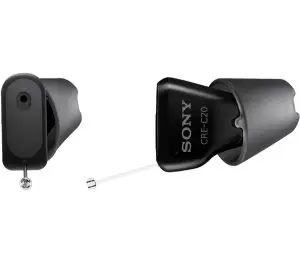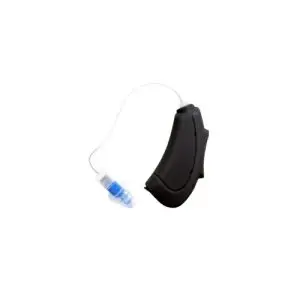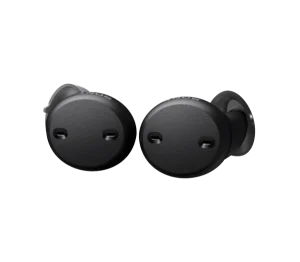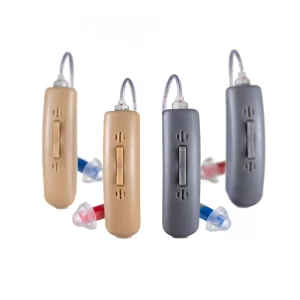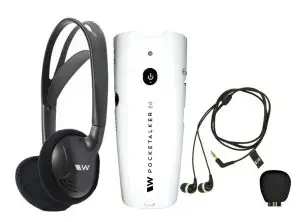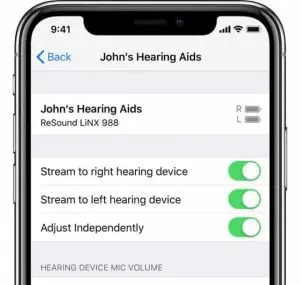Are Over-the-Counter Hearing Aids a Good Fit for Your Hearing Needs? Here is what you need to think about:
The topic of over-the-counter (OTC) hearing aids is buzzing, and it’s easy to see why. With the rise of these devices, more people are wondering, “Is it okay for people with hearing loss to buy OTC hearing aids?” Let’s dive into this with a touch of fun and honesty—because, sometimes, the industry might not want you to know all the details!
The Industry’s Little Secret
Here’s the thing: the traditional hearing aid market is like a close-knit club. And consequently not everyone is thrilled about the newcomers—the hearing aid category of the OTC hearing aids. Why? Because the traditional route usually involves multiple appointments, fittings, and, let’s be honest, a hefty price tag. Audiologists and hearing aid dispensers have long been the gatekeepers of the medical hearing health, and there’s a certain comfort (and profit) in that.
But along comes the Over-the-Counter hearing aid, shaking things up like a cool new kid on the block. These devices are more affordable, more accessible, and don’t require a prescription. Naturally, some industry professionals might raise an eyebrow or two. After all, if everyone can buy hearing aids off the shelf, where does that leave the traditional model?
Over-the-Counter Hearing Aids are Medical Devices like Prescriptive Hearing Aids
Over-the-counter (OTC) hearing aids are not just simple gadgets—they are classified as medical devices. This means they are designed to meet specific safety and effectiveness standards regulated by the FDA. Because they impact your hearing health, it’s important to treat them with the same care and consideration you would any other medical device. Proper use and selection are essential to ensure they truly benefit your hearing needs.
Why Not Give OTC Hearing Aids a Try?
If you’ve got mild hearing loss, why not see what the fuss is about? Self-fitting hearing aids are designed with you in mind—yes, you, who may not need the full bells and whistles of a customized device but still want to hear better. Plus, trying out an OTC hearing aid doesn’t mean you’re cutting corners. It means you’re exploring your options.
Think of it this way: not everyone needs a luxury car when a reliable sedan will do the job. OTC hearing aids can be that reliable sedan, giving you the boost you need without emptying your wallet.
When considering whether to purchase an over-the-counter (OTC) hearing aid, understanding your degree of hearing loss is key. Not all hearing loss and of course levels of hearing loss are created equal. OTC hearing aids are designed for specific levels of hearing impairment. Let’s review the levels of hearing loss and determine which level is best suited for an OTC hearing aid.
Start with a Hearing Test
If you perceive you have mild-to-moderate hearing loss, it’s important to remember that your perception might not always be accurate. Hearing loss can be tricky to self-diagnose, as it often develops gradually, and you may not notice how much you’re missing. What feels like mild-to-moderate hearing loss could be more significant, or vice versa. That’s why it’s a good idea to have your hearing professionally evaluated to ensure you’re addressing your needs correctly. A health care professional will share with you if you are a candidate for a self fitting hearing aid or if you need a prescirbtive medical device.
If you’re considering an over-the-counter hearing aid, it’s wise to start with a hearing exam. The most reliable hearing exams are conducted in a medical office. There the equipment is calibrated, and the test is administered by a trained professional. While online screenings are available, they often lack the precision needed to accurately determine your degree of hearing loss. By opting for a professional exam first, you ensure that any hearing aid you choose is truly suited to your needs.
Levels of Hearing Loss
-
Normal Hearing (0-20 dB):
- What It Means: You can hear most sounds clearly and don’t struggle with everyday conversations, even in noisy environments.
-
- OTC Hearing Aid Fit: No need for a hearing aid at this stage. Your hearing is within the normal range. Unless you suspect you have a “hidden hearing loss”. We will talk more about that below.
-
Mild Hearing Loss (21-40 dB):
- What It Means: You may have difficulty hearing soft sounds, like whispers, and may struggle with conversations in noisy places. This is often the point where people start noticing that something’s not quite right with their hearing.
- OTC Hearing Aid Fit: Yes! OTC hearing aids are ideal for mild hearing loss. These devices can help amplify sounds, making it easier to hear soft speech and environmental noises without overwhelming you.
-
Moderate Hearing Loss (41-55 dB):
- What It Means: Conversations, even in quiet environments, become challenging. You might frequently ask people to repeat themselves and have trouble hearing the television or phone conversations without increasing the volume.
- OTC Hearing Aid Fit: Possibly. OTC hearing aids can still be helpful for moderate hearing loss. Especially for those who aren’t ready to commit to prescription devices. However, if you find that OTC aids aren’t providing sufficient amplification or clarity, it might be time to consult an audiologist.
-
Moderately Severe Hearing Loss (56-70 dB):
- What It Means: Normal conversation is difficult to impossible to understand without amplification. You might miss out on important sounds like doorbells or alarms.
- OTC Hearing Aid Fit: No. At this stage, OTC hearing aids are likely insufficient. You’ll need a prescription hearing aid with more power and customization options to address your hearing needs effectively.
-
Severe Hearing Loss (71-90 dB):
- What It Means: You can only hear very loud sounds, and conversations are nearly impossible to follow without significant amplification.
- OTC Hearing Aid Fit: No. Severe hearing loss requires specialized, high-powered hearing aids fitted by a professional to ensure the best possible hearing experience.
-
Profound Hearing Loss (91+ dB):
- What It Means: You may only hear very loud noises, and even with amplification, understanding speech is a significant challenge.
- OTC Hearing Aid Fit: No. Profound hearing loss requires advanced hearing aids and possibly other assistive listening devices, all of which should be prescribed and fitted by an audiologist.
Best Hearing Loss Level for OTC Hearing Aids
Mild to Moderate Hearing Loss (21-55 dB) is the sweet spot for OTC hearing aids. These devices are designed to help amplify sounds and improve speech clarity for individuals within this range. They offer a cost-effective, accessible solution for those who don’t require the more powerful and customizable options available with prescription hearing aids.
If you suspect your hearing loss falls within this range, an OTC hearing aid could be a great first step. However, if your hearing loss is on the more severe side, or if you find that the OTC device isn’t meeting your needs, it’s best to consult with an audiologist to explore more tailored options.
OTC For a Hidden Hearing Loss and What Is Hidden Hearing Loss?
Hidden hearing loss is a type of hearing impairment that isn’t easily detected by standard hearing tests. Unlike typical hearing loss, where the issue lies in the ear’s ability to detect sounds, hidden hearing loss affects the brain’s ability to process sound, especially in noisy environments. This means that even though you might pass a hearing test with flying colors, you could still struggle to understand conversations in places with background noise, like restaurants or social gatherings.
Symptoms of Hidden Hearing Loss
- Difficulty Understanding Speech in Noise: You might notice that while you can hear sounds, understanding speech, especially when there’s background noise, is challenging.
- Listening Fatigue: Struggling to follow conversations in noisy environments can be exhausting, leading to listening fatigue.
- Normal Hearing Tests: You might have normal results on standard hearing tests, even though you experience these difficulties.
More Factors to Consider when Considering Purchasing an OTC Hearing aid
When considering an over-the-counter (OTC) hearing aid, it’s crucial to think beyond just the level of hearing loss you perceive. There are other important factors that could impact your experience:
- Earwax Buildup: If you have wax in your ears, it can affect how well a hearing aid works. Wax can block sound from entering the ear or even damage the device. Without a professional examination, you might not realize wax is a problem.
- Ear Canal Size and Shape: The size and shape of your ear canals can vary widely. If your ear canals are particularly narrow or uniquely shaped, it could affect the fit and effectiveness of an OTC hearing aid. A poor fit can lead to discomfort, feedback, or reduced sound quality.
- Type of Hearing Loss: Not all hearing loss is the same. Some types of hearing loss, such as conductive hearing loss, might not be fully addressed by an OTC device. Understanding the nature of your hearing loss—whether it’s sensorineural, conductive, or mixed—can influence which hearing aid is most suitable for you.
Before diving into an OTC purchase, it’s worth considering these factors to ensure you choose the right solution for your hearing needs.
Knowing all this Should You Still Consider an OTC Hearing Aid?
If you suspect you have hidden hearing loss, an over-the-counter (OTC) hearing aid can be a good choice to help manage your symptoms. OTC hearing aids can amplify sounds and improve speech clarity, especially in noisy environments where hidden hearing loss becomes most noticeable. Since hidden hearing loss often goes undiagnosed in traditional hearing tests, starting with an OTC device could provide the immediate assistance you need to better navigate challenging listening situations.
If you find that the OTC hearing aid doesn’t fully address your issues, or if your difficulties persist, it’s wise to consult an audiologist for further evaluation and possible additional treatments or hearing solutions.
Weighing the Pros and Cons—With a Smile
- Pros:
-
- Accessibility and Convenience: Imagine picking up a hearing aid alongside your groceries—no need for multiple trips to the audiologist.
- Cost-Effectiveness: Save some cash for the fun stuff! OTC hearing aids are often much cheaper, ranging from $200 to $1,000.
- Control and Personalization: You get to choose what suits you best. Want something sleek and discreet? Go for it!
- Cons:
-
- Fit and Fine-Tuning: Without a professional fitting, there’s a chance the device might not sit just right or give you the optimal experience.
- Limited Features: While great for mild to moderate hearing loss, OTC hearing aids might lack some advanced features found in traditional devices.
A Final Thought
At the end of the day, it’s about what works for you. If OTC hearing aids meet your needs, why not give them a shot? Just remember, the hearing industry is like any other—full of options, opinions, and a bit of drama. But with a little research and a sense of adventure, you can find the perfect solution to keep you hearing clearly, all while keeping a smile on your face.
No matter what type of hearing device you choose—whether it’s a personal sound amplifier, an over-the-counter hearing aid, or a prescription hearing aid—improving your hearing can significantly enhance your quality of life. Consulting with a hearing professional increases your chances of finding the right solution for your specific needs. We believe in guiding you through this process, rather than leaving you to navigate it alone at a big-box store. As trained hearing healthcare providers, we can help you understand return policies, and if the first option isn’t the perfect fit, we’ll work with you to explore other devices until you find the one that’s right for you.
